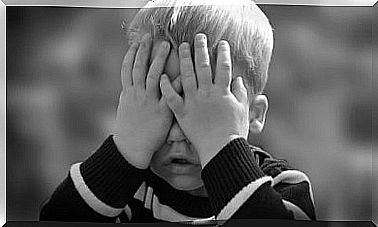Parental Rights When The Child Turns 18

Many young people dream of being 18 years old because they think that from then on they will be able to do whatever they want. But 18 years are only a legal and symbolic limit: what happens in practice when the child turns 18?
In reality, maturity and independence generally come later, when the children start working, have a partner or go away to study. Each case is different, despite the fact that 18 years of age are an important moment, since they constitute, at least in Spain, the age of majority.
When the child turns 18, the parents cease to have certain rights, but continue to have others. Here we go over some important details to better understand those rights.
Parental authority and legal age
When the children turn 18, the parental authority or guardianship of the parents over them ends. Parental authority is the set of rights and obligations that parents have over minor children, in a personal and patrimonial sense.

Among the main duties that parents have in their capacity as custodians of their children are to watch over them, keep them in their company, feed them, educate them and seek a complete training for them. Among the rights of parents is to represent them and manage their assets.
Although the parental authority and legal representation of the children ends when they turn 18, there are some exceptions. One of them is that of legally emancipated children: in that case, parental authority ends at the time of emancipation, even if the children are minors.
The law establishes the age of majority as the limit to exercise parental authority, but in reality parents continue to have many obligations to their children after that age (and fewer and fewer rights).
In practice, the obligation of parents to provide maintenance, care and protection to their children ends when they achieve their economic independence. It may also happen that parental authority extends beyond 18 years of age, in the event that the children have been declared incapable.
Today, young people have many difficulties to become independent and live with their parents much longer, so that the obligation of parents extends well beyond the age of 18. And this obligation is protected by law.
In practice, when an adult child still lives with his parents and is not financially independent, he can claim judicially if his parents no longer want to support him.
The rights of the child when he turns 18
When a young person turns 18 they have the right to full capacity to act. What does this mean? That he can carry out any type of legal action, with the rights and obligations that this entails, since he is considered legally capable of regulating his interests through his actions.
From the age of 18, a person can vote, obtain a license to drive, work and manage and freely dispose of their assets. From then on, you can also buy alcohol and tobacco, leave the country freely, have a bank account, etc.

However, not everything is rights. An adult can also be tried and convicted from the age of 18, and can be sued for child support and medical bills due to the birth of a child.
The rights of parents
As they turn 18, many young people demand more freedom from their parents. They want to have fewer limits, arrive at the time they want, and inform their parents less about what they are going to do. They are also likely to ask to smoke at home or drink alcohol, and want less responsibility for housework.
However, parents also have the right to give in or not to these demands because, as long as their children depend on and live with them, they can continue to set the rules. And, if they feel that something is not right or beneficial for your child, they are not required to give in just because they are already 18 years old. The ideal is always to reach agreements through negotiation.
Parents need to be aware that their children are growing up and becoming adults. It is necessary that they have more and more autonomy and, for this, the tendency must be to give them more and more freedoms. But these do not necessarily have to be the ones they ask for, but the ones the parents deem appropriate.










